Photo - In the mountains of Batken, a road built by Austro-Hungarian prisoners of war has been preserved
According to a Turmush correspondent, Austrian prisoners of war were brought to the region to work on road construction, which were then used for transporting goods by carts.
One such road is located in the foothills, about 3-4 km south of the village of Austan, along the Isfayram River. This area is currently part of the Surma-Tash State Nature Reserve. The road was laid in the direction of Chon-Alay.
According to local elders, tungsten was mined in the Surma-Tash mines in the past. The ore was loaded onto carts and sent to Kyzyl-Kiya. During that time, bridges were also built over the Isfayram River, which have since collapsed, and a new automobile bridge now stands in their place.
Some locals suggest that this road connected the Kadamjai and Chon-Alay districts. The time period of its construction may coincide with the reign of Kurmanjan-Datka, who, according to some sources, used this road for trips to the rulers of the Kokand Khanate. Traces of carts can still be seen on the slopes.
Austro-Hungarian army prisoners of war, while in the territory of modern Batken region, were engaged not only in road construction but also in repairing weapons for the Russian army.
There are reports that some of them exchanged weapons for jewelry with the local population.
Currently, in the Maydanskiy ayil aimak of the Kadamjai district, a project is being implemented to build a road connecting the Batken region with the Chon-Alay district of the Osh region. The length of the new road will be 127 km, and work is being carried out from both sides by the employees of DEP-46.
Reference Information
Initially, the Russian authorities planned to place prisoners of war in Turkestan only in areas remote from large settlements and railway lines. However, due to the large number of captives and the lack of accommodation, these plans were changed. As a result, the first groups of prisoners of war began to arrive in Turkestan in September 1914, after the capture of Przemyśl, and about 50,000 people of various nationalities were accommodated in Tashkent.
At first, the accommodation of prisoners of war did not pose significant difficulties, as barracks freed from the troops of the Turkestan Military District, which had gone to the front, were used for this purpose.
However, it soon became clear that there were not enough available facilities. In early 1915, it was planned to accommodate another 1,200 prisoners of war in Katta-Kurgan, but the city could only hold 600 people, and in Samarkand, out of 1,000 prisoners of war, there was space for only 508.
Read also:

Tourist Area Management Program
The project "USAID Business Development Initiative" (BGI), within the tourism...

Types of Insects Listed in the 2004 IUCN RLTS Not Included in the Red Book of Kyrgyzstan
Insect species listed in the 2004 IUCN RLTS, not included in the Red Book of Kyrgyzstan 1....
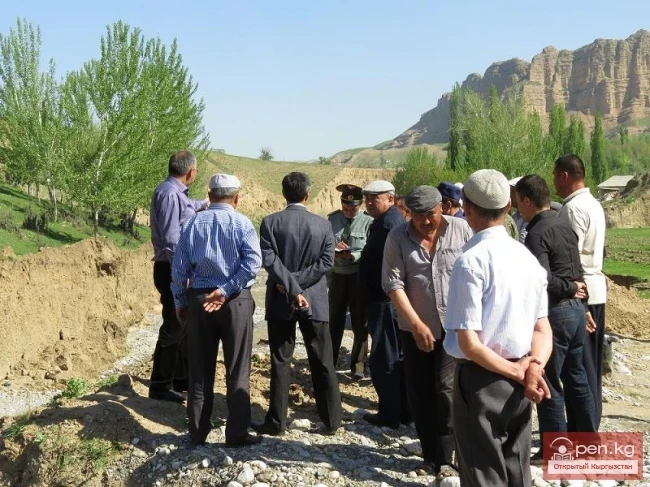
Batken
...

Types of Higher Plants Listed in the "Red Book" of Kyrgyzstan (1985)
Species of higher plants removed from the "Red Book" of Kyrgyzstan (1985) Species of...
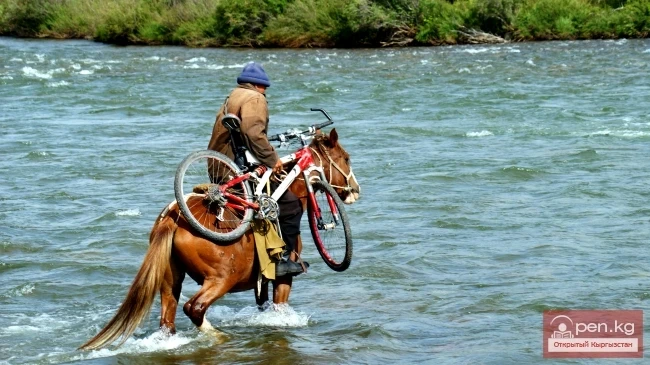
Bicycle Tourism Routes by Difficulty Categories
2 difficulty categories...
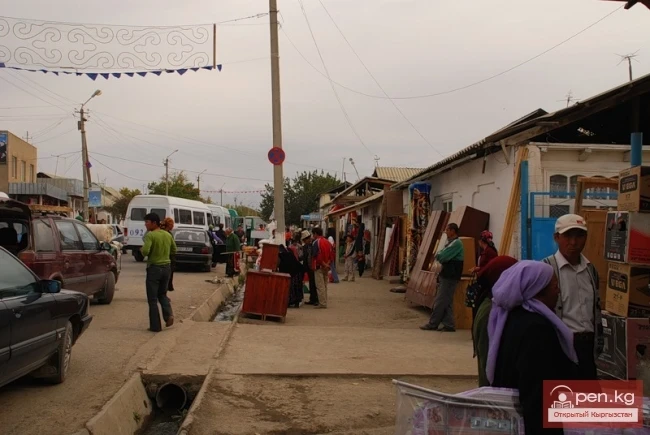
Batken
Batken is a city in Kyrgyzstan, the administrative center of Batken Region and District. The...

Bicycle Touring Routes by Difficulty Categories
2 difficulty categories...
In Batken, the price of gasoline remains high
According to a Turmush correspondent, there is a stable high price for gasoline in Batken. As of...

Types of Insects Excluded from the Red Book of Kyrgyzstan
Insect species excluded from the Red Data Book of Kyrgyzstan Insect species excluded from the Red...
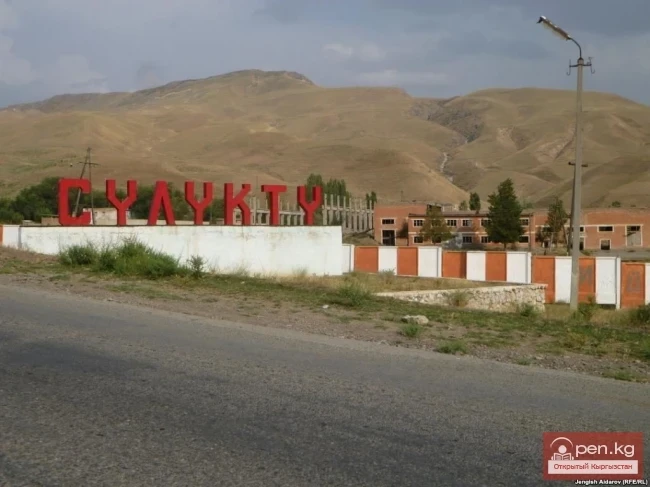
Sulyukta
Sulyukta is a city of regional subordination in the Batken region of Kyrgyzstan. Population (2009)...
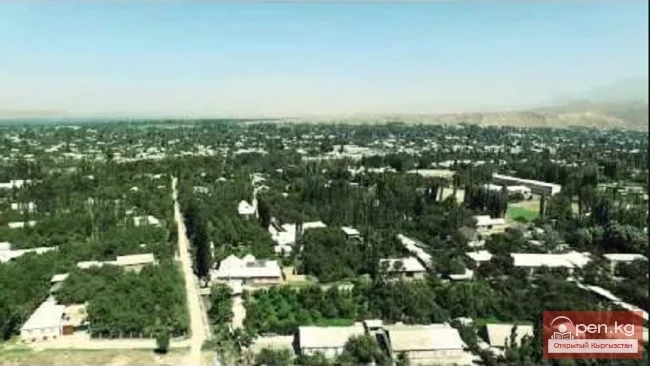
The title translates to "The Village of Uch-Korgon."
Uch-Korgon – a large village (kishlak) in the northeast of the Batken region. The word...
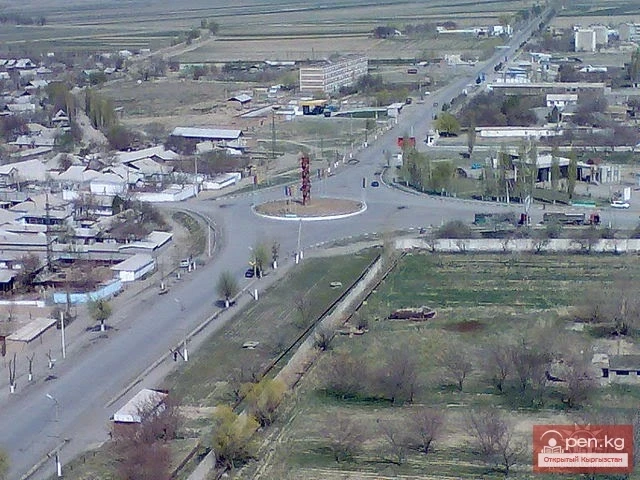
Kyzyl-Kiya
Kyzyl-Kiya is a city of regional subordination in the Batken region of Kyrgyzstan. Population...
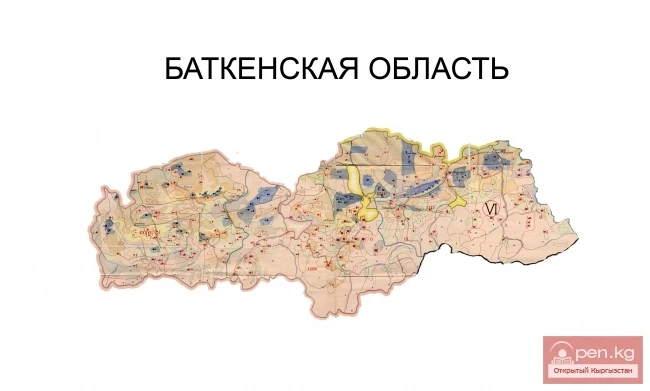
Batken Region
The Batken Region was established on October 12, 1999, from the Osh Region. It includes the...

Poet, Prose Writer Tash Miyashev
Poet and prose writer T. Miyashev was born in the village of Papai in the Karasuu district of the...
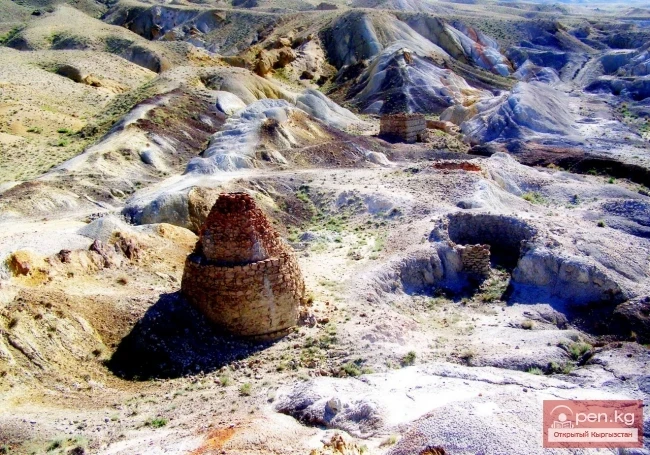
In the Batken Region, there are 100 tourist sites.
There are 100 tourist sites in the Batken region. This was stated today by the plenipotentiary...

Weather forecast in Kyrgyzstan for October 23: no rain expected
Clear weather without rain is expected in Kyrgyzstan. In the capital, Bishkek, the temperature at...

The Poet Baidilda Sarnogoev
Poet B. Sarnogoev was born on January 14, 1932, in the village of Budenovka, Talas District, Talas...

Prose Writer, Critic Dairbek Kazakbaev
Prose writer and critic D. Kazakbaev was born on June 20, 1940, in the village of Dzhan-Talap,...

The Poet Sooronbay Jusuyev
Poet S. Dzhusuev was born in the wintering place Kyzyl-Dzhar in the current Soviet district of the...
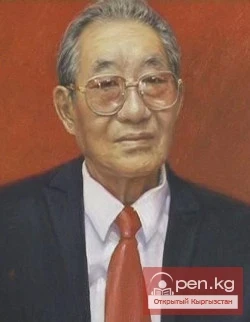
Poet, Prose Writer Isabek Isakov
Poet and prose writer I. Isakov was born on September 1, 1933, in the village of Kochkorka,...
Boy dies after dog bite: Medical staff confirmed death, while parents brought him to the district hospital in hopes of a miracle
A tragic incident occurred on October 22, and an investigation is currently underway with the...
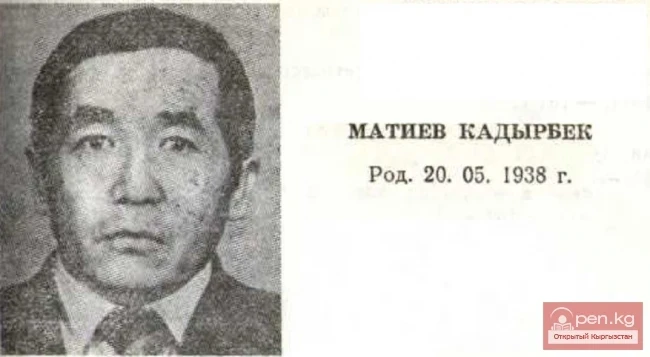
Critic, Literary Scholar Kadyrbek Matiyev
Critic, literary scholar Kadyrbek Matiev was born in the village of Ak-Took in the Suzak district...

Prose Writer Duyshen Sulaymanov
Prose writer D. Su laymanov was born in the village of Jilaymash in the Sokuluk district of the...
New Workout Zones and Playgrounds Opened in Sokuluk District
Representatives of the rural administration reported to the correspondent that modern workout zones...
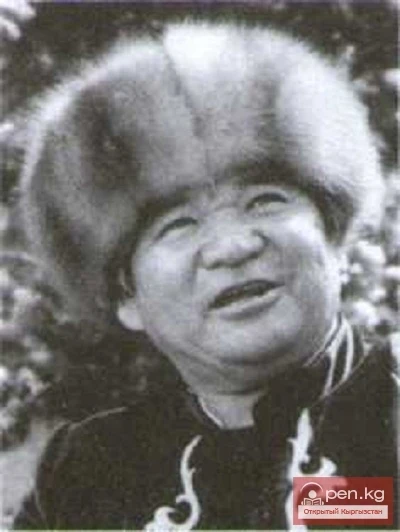
Estebes Tursunaliev
Estebes Tursunaliev (born 1931) — akyn-improviser, People's Artist of the USSR (1988),...
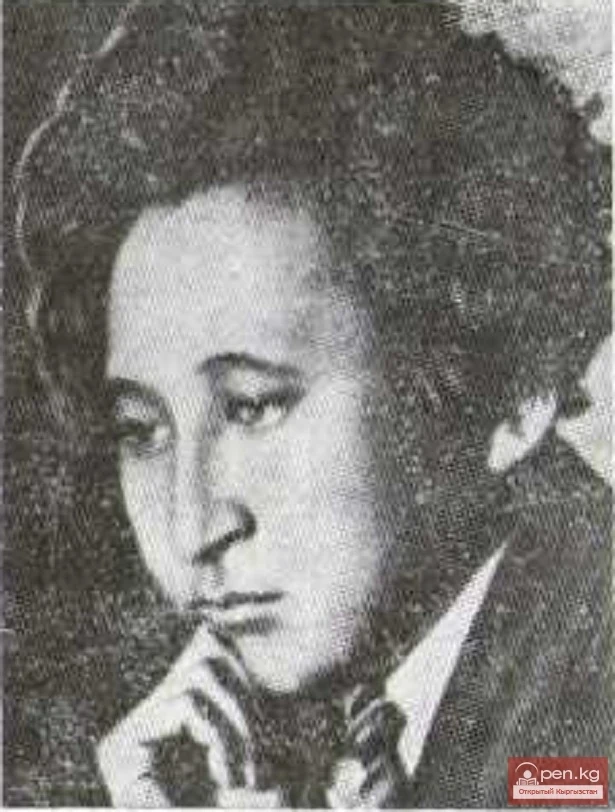
Poet, playwright Dzhomart Bokonbaev
Poet and playwright J. Bokonbaev was born on May 16, 1910 — July 1, 1944, in the village of...
Photo - A City with an Interesting "Highlight" in the Mountains of Kyrgyzstan
This year, Naryn is celebrating its 156th birthday. The correspondent of Turmush discovered...
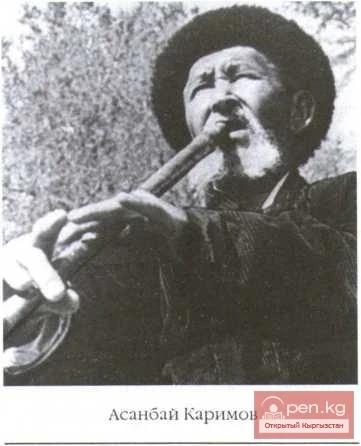
Asanbay Karimov (1898—1979)
Asanbay Karimov (1898— 1979) — an outstanding folk professional choorchu. A self-taught musician,...
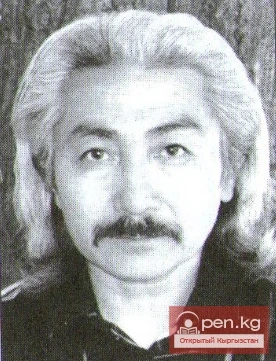
Abstatarov Orozbay
Absattarov Orozbay Painter, graphic artist. Born in 1957 in the village of Batken, Batken region,...
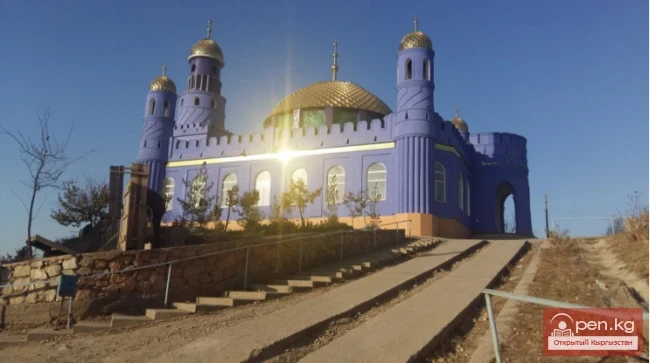
"Welcoming Batken Through the Eyes of Bishkek Residents"
Juicy Kyrgyz Language and Purple Mosque Traveling through Kyrgyzstan is essential to understand...
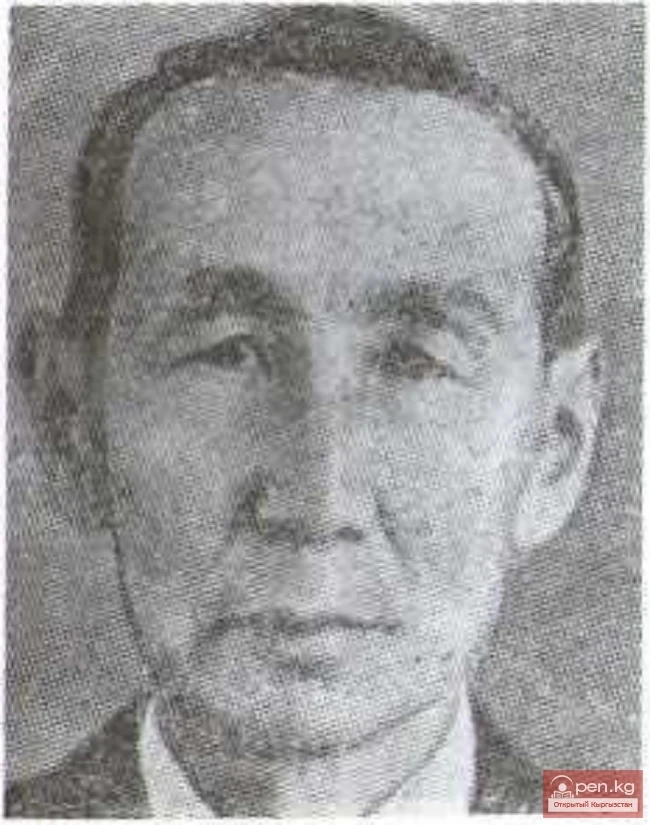
Prose Writer Kasymaly Bayalinov
Prose writer K. Bayalynov was born on September 25, 1902—September 3, 1979, in the Kotmaldy area...
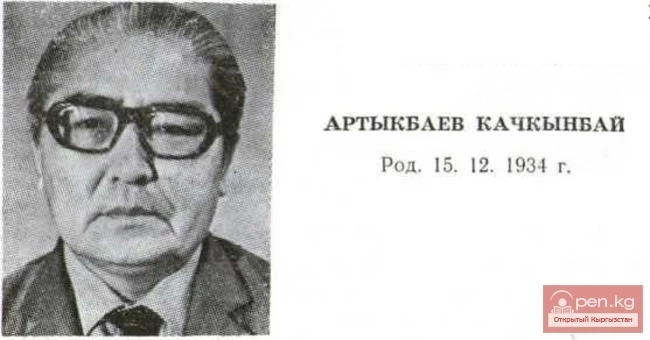
Critic, Literary Scholar, Poet Kachkynbai Artykbaev
Critic, literary scholar, poet K. Artykbaev was born in the village of Keper-Aryk in the Moscow...
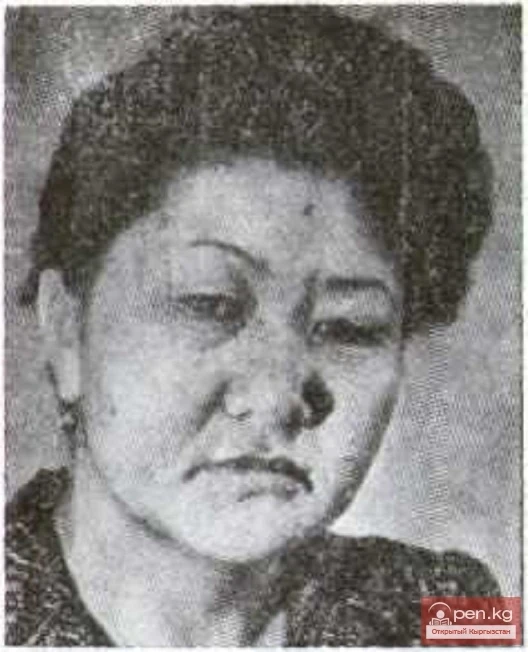
The Poet Alymkan Degenbaeva
Poet A. Degenbaeva was born on May 12, 1941, in the village of Belovodskoye, Moscow District,...
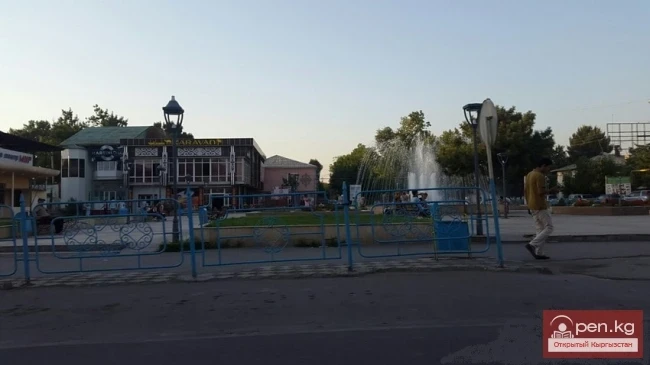
City of Nookat
The city of Nookat is located in Kyrgyzstan and is the center of the eponymous district of the Osh...
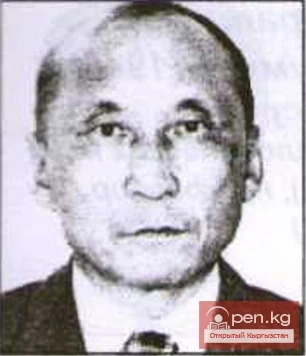
Omuraliyev Ashymkan
Omuraliyev Ashymkan (1928), Doctor of Historical Sciences (1975), Professor (1977) Kyrgyz. Born in...
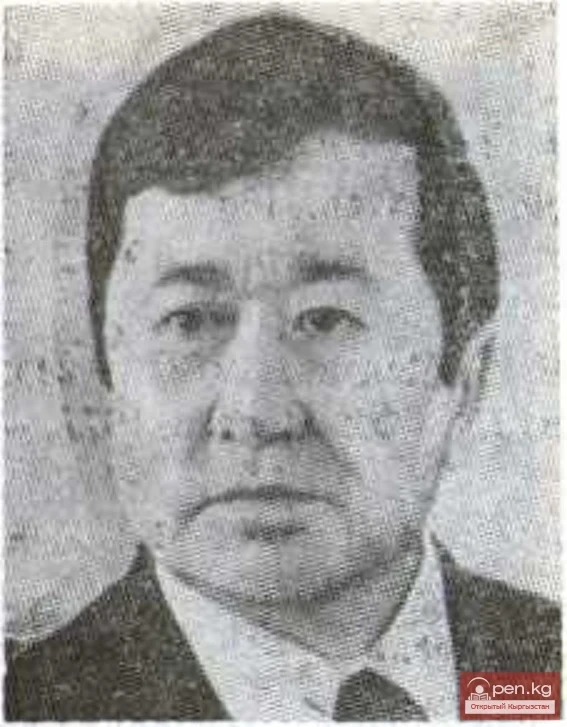
Critic, Literary Scholar Keneshbek Asanaliev
Critic and literary scholar K. Asanaliev was born on June 10, 1928, in the village of Sokuluk (now...
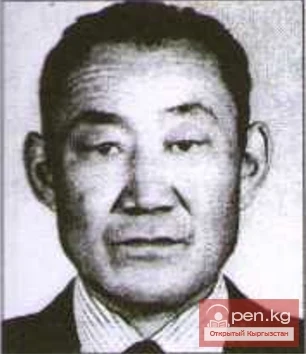
Osmonov Anvar Osmonovich
Osmonov Anvar Osmonovich (1941), Doctor of Veterinary Sciences (2000) Kyrgyz. Born in the village...

Surmatashtsky Municipal Nature Reserve
The State Nature Reserve "Surma-Tash" inspires with its beauty and uniqueness. The...

The meeting between the leaders of Japan and Kyrgyzstan was very productive.
“The visit of the Prime Minister of Japan to Kyrgyzstan will go down in history as the first visit...

Poet, Playwright J. Sadykov
Poet and playwright J. Sadykov was born on October 23, 1932, in the village of Kichi-Kemin, Kemin...

Ancient Information about the Structure and History of the Earth's Surface
If we consider events spanning a longer geological time, the ideas expressed in the epic...
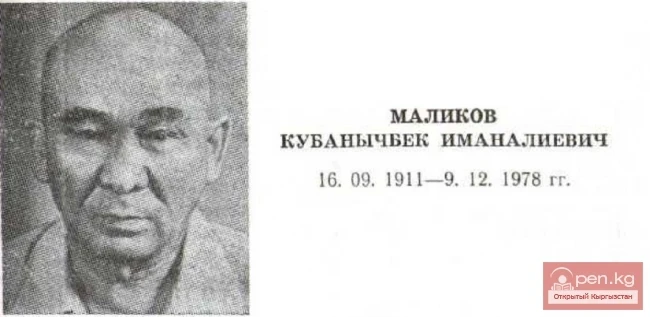
Poet, playwright Kubanychbek Malikov
Poet and playwright K. Malikov was born in the village of Uch-Emchek in the present-day Alamedin...

Social Hierarchy of Kyrgyz Women
SOCIAL HIERARCHY OF WOMEN Reliable information about the social structure of the Kyrgyz people can...

Improvisational Poet Alymkul Usenbaev
Akin-improviser A. Usenbaev was born in 1894 and died on August 2, 1963, in the village of...
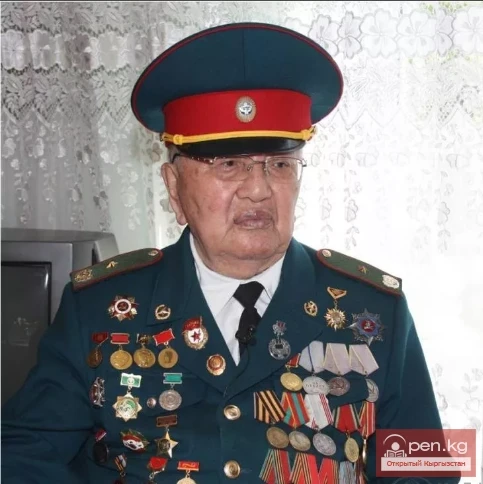
Hero of the Kyrgyz Republic Jusuev Sooronbay Jusuevich
Sooronbay Jusuyev Born on May 15, 1925, in the village of Kyzyl-Zhar, in the mountainous valley of...
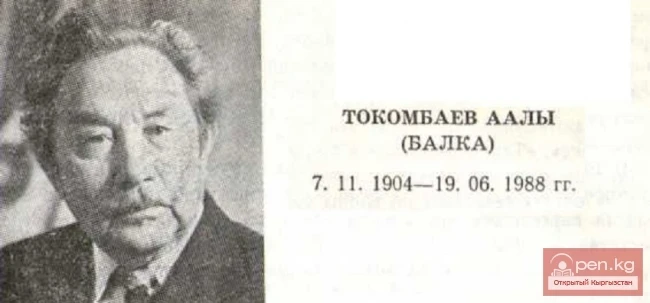
Poet, Prose Writer, Playwright Aaly Tokombaev (Balky)
Poet, prose writer, playwright A. Tokombaev was born in the village of Kainy in the present-day...
Marlen Aibekov appointed head of the city hall of Kara-Balta
Marlen Aibekovich Aibekov now heads the apparatus of the city hall of Kara-Balta. According to...

Weather Prophet Atay from Jumgal
Among the folk weather predictors, Atai from Jumgal was known for his observations of cloud...